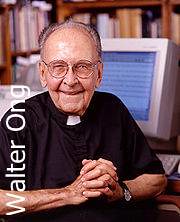Duluth, Minnesota (OpEdNews) May 9, 2022: In Western cultural history, the verbal arts of grammar, rhetoric, and logic (also known as dialectic) have their roots in ancient Greek culture.
The ancient Greek Sophists famously practiced rhetoric, as did other less famous ancient Greek public speakers - and as did the characters in the Homeric epics the Iliad and the Odyssey in their speeches. As a matter of fact, speeches predominate in the Homeric epics, which were transcribed in ancient Greek but which originated in oral tradition (i.e., pre-literate thought and expression). Plato artfully competes with the Homeric epics in his written dialogues in which speeches also predominate. But the verbal art of rhetoric, while obviously designed for the practice of rhetoric, involves some kind of written codification regarding the practice of rhetoric.
Similarly, the verbal art of grammar involves some kind of written codification - not just the teaching, in effect, and learning from the example of the practice of interpretation.
Aristotle is credited as the founder of the written formal study of logic - not just the teaching, in effect, and learning from the example of the argumentation such as the examples of argumentation in the Homeric epics and other ancient Greek literary sources.
Concerning the pre-literate antecedents of the various verbal practices, start with Albert B. Lord's landmarks 1960 book The Singer of Tales (Harvard University Press), but then look at John Miles Foley's judicious 1999 book Homer's Traditional Art (Pennsylvania State University Press). But then also look at G. E. R. Lloyd's 1966 study Polarity and Analogy: Two Types of Argumentation in Early Greek Thought (Cambridge University Press). Concerning ancient Greek literacy, see Barry B. Powell's 1991 book Homer and the Origins of the Greek Alphabet (Cambridge University Press) and Eric A. Havelock's books Preface to Plato (Belknap Press of Harvard University Press, 1963) and The Greek Concept of Justice: From Its Shadow in Homer to Its Substance in Plato (Harvard University Press, 1978).
Walter J. Ong and Marshall McLuhan
My favorite scholar is the late American Jesuit Renaissance specialist and media ecology theorist Walter J. Ong (1912-2003; Ph.D. in English, Harvard University, 1955) in English at Saint Louis University, the Jesuit university in St. Louis, Missouri (USA). He was born and raised in Kansas City, Missouri, and he graduated from the Jesuit high school and the Jesuit college in Kansas City before he entered the Jesuit novitiate in suburban St. Louis in September 1935. During his lengthy Jesuit formation, young Ong earned three graduate degrees at Saint Louis University (a Master's in English [1941]; a licentiate degree in philosophy [1941]; and, later, a licentiate degree in theology [1948]), after which he subsequently pursued his doctoral studies in English at Harvard University.
When young Ong was working on his Master's in English, he studied English under the young Canadian and recent Catholic convert Marshall McLuhan (1911-1980; Ph.D. in English, Cambridge University, 1943), who taught English at Saint Louis University from 1937 to 1944, while he continued to work on his 1943 doctoral dissertation on the history of the verbal arts of grammar, rhetoric, and logic (also known as dialectic) with special reference to the English Renaissance writer Thomas Nashe (1567-1601). McLuhan's 1943 Cambridge University doctoral dissertation was posthumously published as the 2006 book The Classical Trivium: The Place of Thomas Nashe in the Learning of His Time, edited by W. Terrence Gordon (Gingko Press).
When young Ong was working on his Master's in English at Saint Louis University, he was also working on his licentiate degree in philosophy. In high school and college in Kansas City, young Ong had known the young professor of philosophy at SLU Bernard J. Muller-Thym (1909-1974; Ph.D. in philosophy, University of Toronto, 1938). Muller-Thym published his doctoral dissertation in medieval philosophy as the book The Establishment of the University of Being in the Doctrine of Meister Eckhart of Hochheim; with a "Preface" (pp. ix-xiii) by Etienne Gilson (Sheed & Ward, 1939).
In any event, when Ong had been ordained a Jesuit priest and had subsequently completed the novitiate-like final years of his formal Jesuit formation, he proceeded to undertake his doctoral studies in English at Harvard University. Perry Miller, the author of the massively researched 1939 book The New England Mind: The Seventeenth Century (Harvard University Press) about, in part, Peter Ramus, served as the director of Ong's massively researched doctoral dissertation about the history of the verbal arts of rhetoric and logic (also known as dialectic) from antiquity down to the French Renaissance logician and educational reformer and Protestant martyr Peter Ramus (1515-1572).
Subsequently, Ong's dissertation was published, slightly revised, by Harvard University Press in two volumes in 1958:
(1) Ramus, Method, and the Decay of Dialogue: From the Art of Discourse to the Art of Reason (as in the Age of Reason [also known as the Enlightenment]);
Next Page 1 | 2 | 3 | 4 | 5 | 6 | 7 | 8
(Note: You can view every article as one long page if you sign up as an Advocate Member, or higher).





